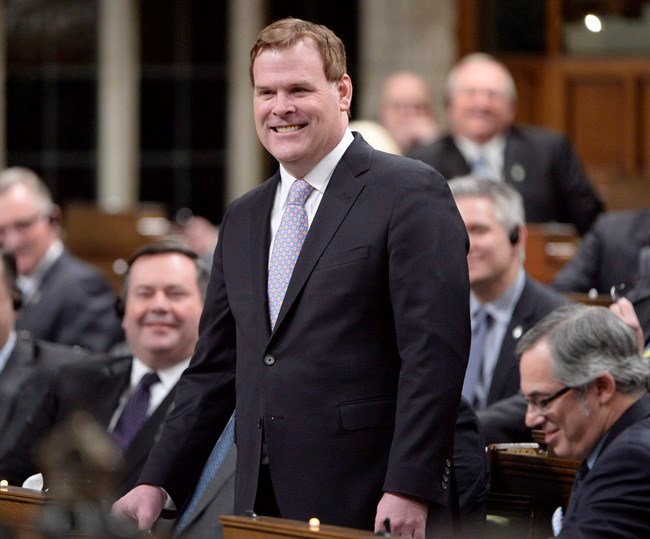So now it falls to Robert Douglas Nicholson — the plodding journeyman — to inherit the world of John Baird.
The office will elevate Nicholson, but will Nicholson elevate the office? Will he bring to it less certainty and more humility? After Baird, the mogul of the megaphone, it won’t be that hard.
To his chorus of admirers, Baird was “principled.” He was “a rare beacon of light” and “a pillar of strength.” He was “a great foreign minister.”
That superlative comes from Jason Kenney, the new defence minister. Ironically, Kenney should be foreign minister; more than anyone in cabinet, Kenney has the intelligence and sophistication for serious diplomacy.
But Kenney is not in the job because he has a consistency of morality that Baird did not. Kenney’s problem is that he believes in human rights everywhere, not just where it is convenient.
There was a time Stephen Harper did, too, but he caved on China when he realized the economic cost. Kenney never did and he remains persona non grata in Beijing.
Yes, Baird was a champion of gay rights, a supporter of maternal health, a voice for democracy. He was charming, amiable and competitive. In length and breadth of service, he has had a brilliant career.
As foreign minister, though, he was the elephant at the ballet. He was a windy, swaggering moralist — lecturing and hectoring from international platforms. His view of the world was untutored, unnuanced and unpersuasive.
He condemned Iran and closed our embassy there, as our allies try mightily to curtail its nuclear program. He called ISIL a great existential evil and embraced a tepid military response. Baird, bless his boyish bluster, was always loudest when carrying a fly swatter.
Under his watch, Canada withdrew from or rejected international conventions, usually out of politics. We ignored the United Nations rather than influence it as a member of the Security Council. He dismissed climate change and frustrated efforts to fight it.
As Baird damaged our diplomacy, he disparaged our diplomats. His complaint was they live too well. So a new ambassador to a middle-sized country recently spent two of his first four months looking for a new house, after the bean-counters deemed the previous two too large. His Excellency is now safely sequestered in a bungalow in the marches, where no one can find him.
When Baird saw our historic residence in Rome, he took a photo on his iPhone and ordered it sold. No matter that the Italians gave it to Canada after the war.
Baird would have also unloaded our glittering residence in Paris, which offended Laureen Harper, had he not learned that the government of Quebec would buy it.
On Baird’s watch, the diplomats staged the longest strike in history. He made it fashionable to ignore diplomats — as if Paul Heinbecker and Jeremy Kinsman are just dotty sentimentalists.
Oh, it will not be hard for Nicholson to fill Baird’s shoes, which come from Kiddie Kobbler. After all, who would remove the building named after Lester B. Pearson, a Nobel Laureate, from the address on his business card? Who would name a neighbouring building and a prize after John Diefenbaker, insisting that “history will be kind to him?” History has not.
Who would send a little-known partisan as Canada’s ambassador to Israel to never mutter a discouraging word? Who would condemn human-rights abuses in Iran but go silent on the rest of the Arab world, to which he made so many dubious visits?
A great minister? Only amid the dim lights of Harper’s diplomatic filament — Peter MacKay, Maxime Bernier, Lawrence Cannon — would Baird be incandescent.
Finally, there was his messy departure. He leaves, it seems, angry at the prime minister (loyal ministers give the boss weeks’ notice, not hours. Loyal prime ministers do not leave the House without paying tribute to a departing colleague, as Harper did.)
There was a falling out. One day we will know why.
Andrew Cohen teaches journalism at Carleton University in Ottawa.



